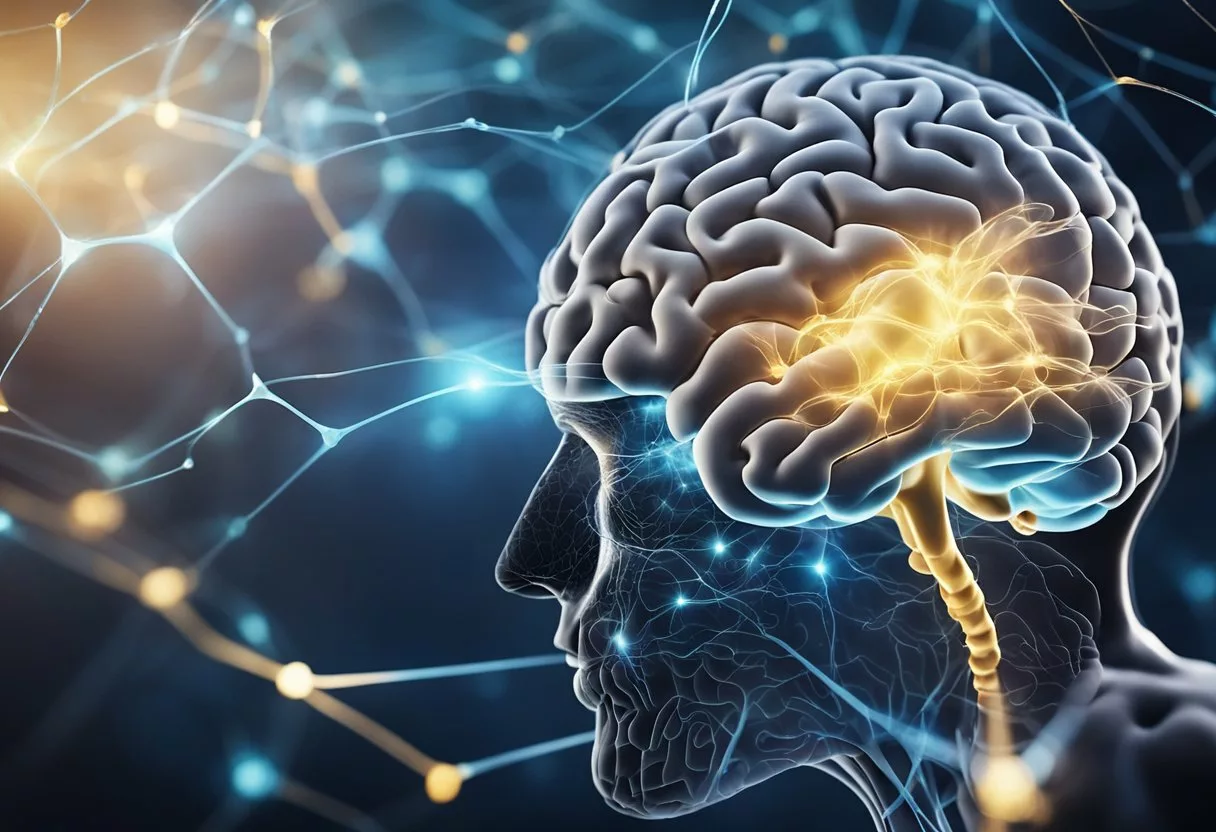Sleep and emotional stability are closely interconnected, and both play an essential role in maintaining one’s mental and physical health. Sleep is essential for the body to repair and rejuvenate itself, while emotional stability is critical for maintaining a positive outlook and overall well-being. However, the relationship between sleep and emotional stability is complex and multifaceted, with each influencing the other in various ways.

What to do before bed to sleep better:
Watch the video NOW!
Research has shown that lack of sleep can have a significant impact on emotional stability, leading to increased irritability, anxiety, and depression. Moreover, emotional stress can also disrupt sleep patterns, leading to sleep deprivation and further exacerbating emotional instability. This interplay between sleep and emotional stability is a topic of ongoing research, with scientists seeking to understand the underlying mechanisms and develop effective interventions to promote better sleep and emotional well-being.
Key Takeaways
- Sleep and emotional stability are closely interconnected, with each influencing the other in various ways.
- Lack of sleep can lead to increased emotional instability, while emotional stress can disrupt sleep patterns.
- Ongoing research seeks to understand the underlying mechanisms and develop effective interventions to promote better sleep and emotional well-being.
The Interconnection of Sleep and Emotion

Understanding the Sleep-Emotion Cycle
Sleep and emotions are closely intertwined, with the quality and duration of sleep affecting emotional regulation and vice versa. According to a recent study [1], the regulation of emotions during sleep is essential for emotional stability during the day. During sleep, the brain processes and consolidates emotional memories, which helps individuals regulate their emotions better during waking hours.
Impact of Sleep Quality on Emotional Regulation
Good sleep quality is essential for emotional regulation. A study [2] found that individuals who had better sleep quality had better emotional regulation and were more resilient to stress. On the other hand, poor sleep quality can lead to negative affect, irritability, and emotional instability.
Effects of Sleep Deprivation on Mood and Cognition
Sleep deprivation can have a significant impact on mood and cognition. A study [3] found that sleep deprivation increased negative affect and decreased positive affect. Sleep-deprived individuals also had decreased cognitive performance, including attention, memory, and decision-making.
The amygdala, a brain region involved in emotional processing, is particularly affected by sleep deprivation. Studies have shown that sleep deprivation increases amygdala activity in response to negative stimuli [4], which can lead to heightened emotional reactivity and impulsivity.
Overall, the interconnection between sleep and emotions is complex and multifaceted. Good sleep quality is crucial for emotional stability, while sleep deprivation can have negative effects on mood and cognition. Therefore, individuals should prioritize good sleep hygiene to maintain emotional well-being and overall health.
[1] https://www.ncbi.nlm.nih.gov/pmc/articles/PMC7181893/
[2] https://www.ncbi.nlm.nih.gov/pmc/articles/PMC4394987/
[3] https://www.ncbi.nlm.nih.gov/pmc/articles/PMC2656292/
[4] https://www.ncbi.nlm.nih.gov/pmc/articles/PMC535701/
Sleep Disorders and Emotional Health

Insomnia and Its Psychological Consequences
Insomnia is a common sleep disorder that affects a significant proportion of the population. It is characterized by difficulty falling asleep, staying asleep, or both. Chronic insomnia can have a significant impact on an individual’s emotional well-being. According to a study published in the Journal of Sleep Research, individuals with insomnia are more likely to experience symptoms of anxiety and depression [1].
Insomnia can also have a negative impact on cognitive function, including memory, attention, and executive functioning. This can further exacerbate emotional distress and contribute to the development of mood disorders [2].
The Link Between Sleep Disorders and Psychiatric Conditions
There is a strong association between sleep disorders and psychiatric conditions, such as anxiety disorders and mood disorders. In fact, insomnia is often considered a symptom of these disorders. According to a study published in the Journal of Psychiatric Research, individuals with anxiety disorders are more likely to experience sleep disturbances, including difficulty falling asleep and staying asleep [3].
Similarly, individuals with mood disorders, such as depression, are more likely to experience insomnia and other sleep disturbances. Sleep deprivation can further exacerbate symptoms of these disorders, leading to a vicious cycle of emotional distress and sleep disturbances [4].
In conclusion, sleep disorders, particularly insomnia, can have a significant impact on an individual’s emotional well-being. It is important to address sleep disturbances as part of the treatment plan for psychiatric conditions, as improving sleep quality can have a positive impact on emotional stability and overall mental health.
[1] https://onlinelibrary.wiley.com/doi/abs/10.1111/jsr.12626
[2] https://www.ncbi.nlm.nih.gov/pmc/articles/PMC3181883/
[3] https://www.sciencedirect.com/science/article/abs/pii/S0022395613001576
[4] https://www.ncbi.nlm.nih.gov/pmc/articles/PMC3181883/
Developmental Perspectives on Sleep and Emotion

Children’s Sleep and Emotional Development
Sleep plays an essential role in children’s emotional development, affecting their social, personal, and academic success. According to a study published in the Journal of Pediatric Psychology, sleep is associated with improved emotional reactivity and regulation in children [1]. Children who experience sleep disturbances are at risk of developing emotional and behavioral problems, such as anxiety and depression [2].
The process model of emotion regulation by Gross (1998) seems to be one of the most cited theoretical frameworks to understand emotion regulation in children [3]. This model primarily focuses on intrinsic emotional response modifying processes to accomplish emotion regulation. Sleep is one such process that can help children regulate their emotions. Research has revealed the function of sleep in regulating emotion to be quintessential [4].
Sleep problems in children can be caused by various factors, including medical conditions, stress, and poor sleep hygiene. Parents can help their children develop healthy sleep habits by establishing a consistent sleep schedule, creating a relaxing bedtime routine, and limiting screen time before bed.
Adolescence: Sleep Patterns and Emotional Challenges
Adolescents experience significant changes in their sleep patterns and emotional challenges. According to a meta-analytic review of 74 studies, less sleep was associated with a 55% increase in the likelihood of emotional deficits [5]. A decrease in positive mood showed a significant association with sleep deprivation in adolescents.
During adolescence, the circadian rhythm shifts, leading to a natural tendency to stay up later and sleep longer in the morning. However, social and academic demands often force adolescents to wake up early, leading to sleep deprivation. Sleep deprivation can affect adolescents’ mental health, leading to mood swings, irritability, and depression.
In conclusion, sleep plays a crucial role in emotional stability, particularly in children and adolescents. Parents and caregivers should prioritize healthy sleep habits to promote emotional well-being in children. Adolescents should be encouraged to maintain a consistent sleep schedule and limit screen time before bed to improve their sleep quality and emotional regulation.
[1] https://pubmed.ncbi.nlm.nih.gov/28201753/
[2] https://www.ncbi.nlm.nih.gov/pmc/articles/PMC7181893/
[3] https://psycnet.apa.org/record/2008-12890-049
[4] https://www.ncbi.nlm.nih.gov/pmc/articles/PMC7181893/
[5] https://www.nature.com/articles/s44159-022-00074-8
Physiological Mechanisms Behind Sleep and Emotion

Brain Structures Involved in Sleep and Emotion
The amygdala, a key structure in the brain’s limbic system, is responsible for processing emotions and is also involved in sleep regulation. During rapid eye movement (REM) sleep, the amygdala is highly active, which may explain why dreams are often emotionally charged. Additionally, the prefrontal cortex, which is responsible for executive functions such as decision-making and impulse control, plays a role in regulating emotions during sleep.
Hormonal Influences on Sleep and Emotional Stability
Hormones such as cortisol and melatonin have been found to influence both sleep quality and emotional stability. Cortisol is a hormone that is released in response to stress, and its levels are typically highest in the morning and decrease throughout the day. However, in medical residents who experience chronic sleep deprivation, cortisol levels remain elevated throughout the day, which may contribute to emotional instability. Melatonin, on the other hand, is a hormone that is involved in regulating the sleep-wake cycle. It is released by the pineal gland in response to darkness and helps to promote sleep.
In addition to these hormones, the circadian rhythm, which is the body’s internal clock that regulates sleep and wake cycles, also plays a role in emotional stability. Disruptions to the circadian rhythm, such as those caused by shift work or jet lag, can lead to sleep disturbances and emotional dysregulation.
Overall, there are complex physiological mechanisms that underlie the relationship between sleep and emotional stability. Understanding these mechanisms is important for developing effective interventions for individuals who struggle with sleep disturbances and emotional dysregulation.
Cognitive and Behavioral Outcomes

The Impact of Sleep on Memory and Learning
Sleep plays a crucial role in memory consolidation and learning. During sleep, the brain processes and organizes information gathered throughout the day, which helps in retaining it for a longer period. Studies have shown that sleep deprivation can have a negative impact on memory and learning. Lack of sleep can impair the ability to concentrate, leading to difficulty in retaining information. Furthermore, sleep deprivation can also affect the ability to form new memories, which can result in forgetfulness and difficulty in recalling previously learned information.
Behavioral Responses to Poor Sleep Quality
Poor sleep quality can have a significant impact on emotional reactivity, conflict resolution, and externalizing behaviors such as aggression and impulsivity. Research has shown that people who experience poor sleep quality are more likely to have difficulty regulating their emotions and may react more strongly to negative stimuli. This can lead to a higher likelihood of conflict in interpersonal relationships. Additionally, poor sleep quality has been found to be associated with increased aggression and impulsivity, which can negatively impact social and professional relationships.
In conclusion, sleep plays a crucial role in cognitive and behavioral outcomes. Sleep deprivation and poor sleep quality can impair memory and learning, as well as lead to emotional reactivity, conflict, and externalizing behaviors. It is important to prioritize good sleep hygiene to maintain emotional stability and cognitive function.
Strategies for Enhancing Sleep and Emotional Well-Being

Sleep Hygiene and Its Role in Emotional Stability
One of the most important aspects of improving sleep and emotional well-being is maintaining good sleep hygiene. This refers to a set of habits and practices that promote healthy and restful sleep. Some key strategies for good sleep hygiene include:
- Establishing a regular sleep schedule: Going to bed and waking up at the same time each day helps regulate the body’s internal clock and improve sleep quality.
- Creating a relaxing sleep environment: Keeping the bedroom quiet, cool, and dark can help promote relaxation and reduce distractions.
- Avoiding stimulants before bedtime: Caffeine, nicotine, and alcohol can all interfere with sleep, so it’s best to avoid them in the hours leading up to bedtime.
- Limiting screen time before bed: The blue light emitted by electronic devices can disrupt sleep, so it’s a good idea to avoid screens for at least an hour before bedtime.
- Getting regular exercise: Exercise can help reduce stress and promote better sleep, but it’s important to avoid vigorous activity close to bedtime.
By following these strategies, individuals can improve their sleep quality and promote emotional stability.
Psychological Interventions for Sleep and Emotional Disorders
In addition to good sleep hygiene, there are several psychological interventions that can help improve sleep and emotional well-being. These include:
- Cognitive-behavioral therapy (CBT): CBT is a type of therapy that focuses on changing negative thought patterns and behaviors. It has been shown to be effective in treating both sleep disorders and emotional disorders.
- Mindfulness-based interventions: Mindfulness practices, such as meditation and deep breathing, can help reduce stress and promote relaxation, which can lead to better sleep and emotional stability.
- Relaxation techniques: Techniques such as progressive muscle relaxation and guided imagery can help reduce physical tension and promote relaxation, which can improve sleep and emotional well-being.
It’s important to note that while these interventions can be effective, they should be used in conjunction with good sleep hygiene practices. Additionally, individuals should work with a qualified mental health professional to determine which interventions are best suited to their specific needs.
Emerging Research and Future Directions

Recent Findings from Sleep and Emotion Studies
Recent research has further strengthened the link between sleep and emotional stability. A meta-analysis of randomized controlled trials found that improving sleep quality leads to better mental health outcomes, including reduced symptoms of depression and anxiety [1]. However, sleep restriction has been shown to have negative effects on emotional brain function, specifically in the amygdala, which is responsible for processing emotional stimuli [2].
In addition to these findings, recent studies have also highlighted the role of brain reward networks in the relationship between sleep and emotional regulation. One study found that sleep deprivation increased activity in the brain’s reward centers in response to high-calorie food, which could lead to overeating and weight gain [3]. These findings suggest that sleep plays an important role in regulating not only emotional responses but also reward-based behaviors.
Innovations in Treatment and Prevention Strategies
Given the importance of sleep for emotional regulation, there is a growing interest in developing innovative treatment and prevention strategies for sleep-related emotional disturbances. One promising approach is cognitive-behavioral therapy for insomnia (CBT-I), which has been shown to improve both sleep and emotional regulation [4].
Another emerging area of research is the use of non-invasive brain stimulation techniques, such as transcranial direct current stimulation (tDCS), to modulate emotional brain function and improve sleep quality [5]. However, more research is needed to fully understand the efficacy and safety of these techniques.
Overall, the emerging research on sleep and emotional stability suggests that improving sleep quality may be an important target for preventing and treating emotional disturbances. However, more research is needed to fully understand the complex relationship between sleep and emotional regulation, and to develop effective interventions for sleep-related emotional disturbances.
References:
- Improving sleep quality leads to better mental health: A meta-analysis of randomised controlled trials
- The interplay between sleep and emotion regulation: conceptual review
- Sleep and Emotional Memory: A Review of Current Findings and Future Directions
- Cognitive-behavioral therapy for insomnia and depression
- Transcranial direct current stimulation (tDCS) for sleep disturbances and insomnia: A systematic review of randomized controlled trials
Frequently Asked Questions

How does sleep quality impact mood and emotional well-being?
Sleep quality can have a significant impact on an individual’s mood and emotional well-being. Research has shown that poor sleep quality is associated with negative emotions, such as irritability, anxiety, and depression. In contrast, good sleep quality is linked to positive emotions, such as happiness, calmness, and contentment.
What is the relationship between sleep deprivation and emotional instability?
Sleep deprivation can lead to emotional instability, such as mood swings, irritability, and impulsive behavior. Lack of sleep affects the brain’s ability to regulate emotions, leading to increased negative emotions and decreased positive emotions. Chronic sleep deprivation has been linked to the development of mental health disorders, such as depression and anxiety.
Can regular sleep patterns improve emotional regulation?
Establishing regular sleep patterns can improve emotional regulation. Consistent sleep patterns help regulate the body’s internal clock, leading to better sleep quality and improved emotional well-being. Adequate sleep can also help reduce stress and anxiety, which are common triggers for emotional dysregulation.
What mental health benefits are associated with adequate sleep?
Adequate sleep has numerous mental health benefits, including improved mood, increased cognitive functioning, and reduced risk of developing mental health disorders. Good sleep quality is associated with better memory consolidation, problem-solving skills, and creativity. Additionally, sufficient sleep can help reduce symptoms of depression and anxiety.
How do sleep disturbances affect social and emotional functioning?
Sleep disturbances, such as insomnia or sleep apnea, can have a negative impact on an individual’s social and emotional functioning. Poor sleep quality can lead to irritability, social withdrawal, and difficulty with interpersonal relationships. Sleep disturbances can also exacerbate symptoms of mental health disorders, such as depression and anxiety.
In what ways does technology use before bedtime influence sleep and subsequent day-time mood?
Technology use before bedtime can negatively impact sleep quality and subsequent daytime mood. The blue light emitted by electronic devices can interfere with the body’s natural sleep-wake cycle, leading to difficulty falling asleep and poor sleep quality. Additionally, using technology before bedtime can increase cognitive stimulation and stress, leading to increased negative emotions and decreased positive emotions. It is recommended to limit technology use before bedtime to improve sleep quality and emotional well-being.